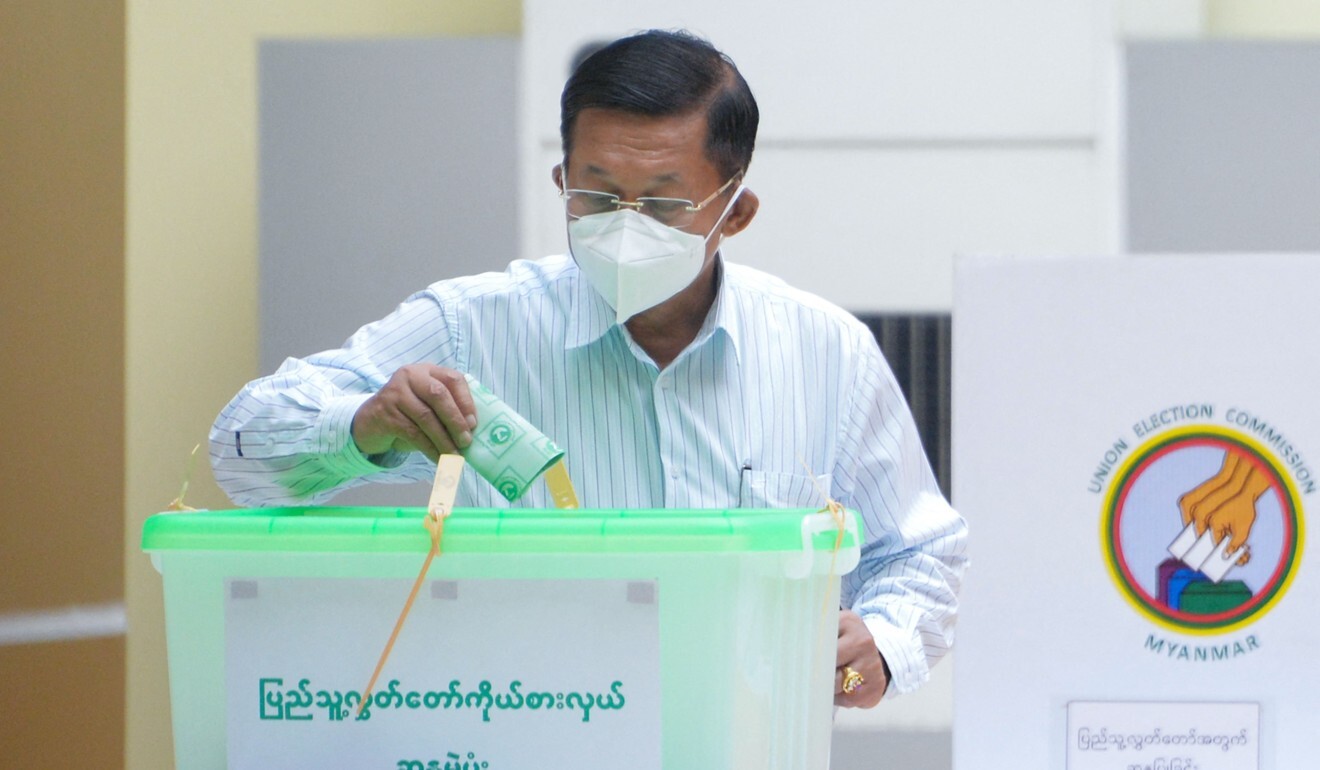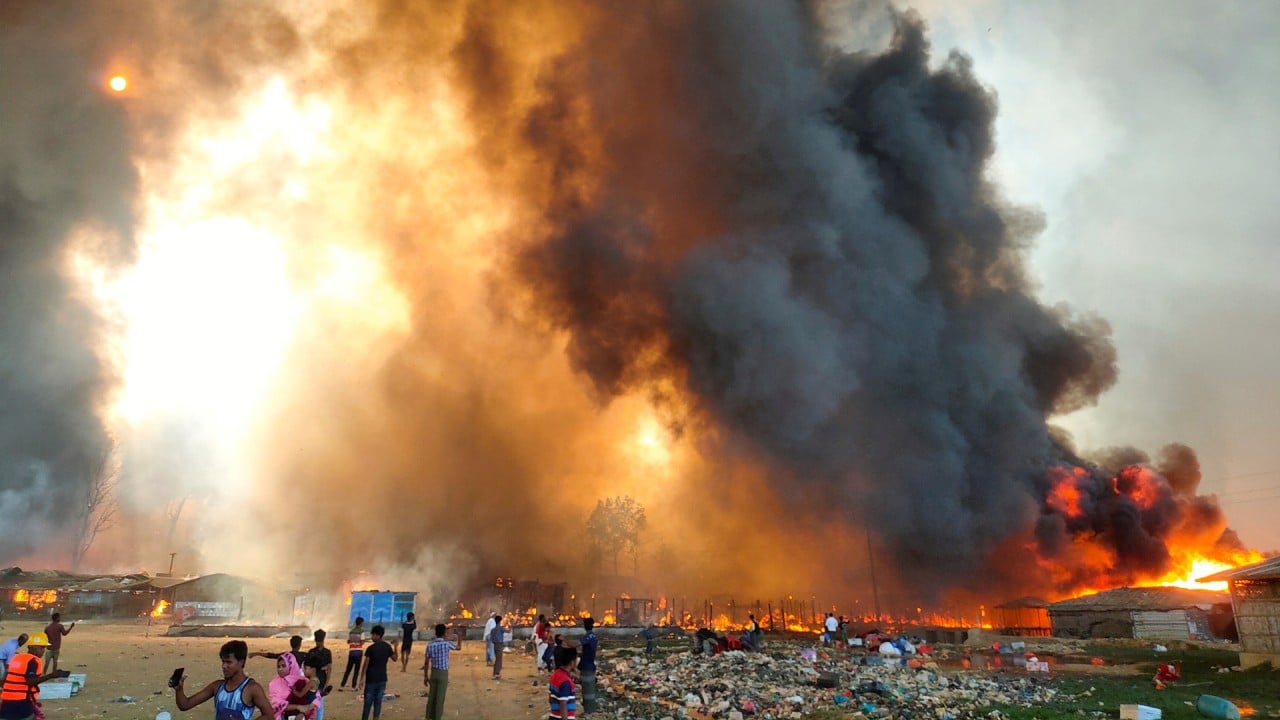
More than 3 million in Myanmar need ‘life-saving’ aid: UN relief chief
- Hundreds of thousands of people have been forced to flee their homes, with some 223,000 people still internally displaced, the UN’s Martin Griffiths said
- Reports of ‘clearing operations’ in Chin state have also raised the spectre of past atrocities committed against the country’s Rohingya Muslim minority
Martin Griffiths warned that without an end to violence and a peaceful resolution of Myanmar’s crisis, “this number will only rise”.

Monday was the first anniversary of the 2020 elections in Myanmar, which “were deemed free and fair by domestic and international observers”, UN spokesman Stephane Dujarric said. They were won by Suu Kyi’s National League for Democracy party with approximately 80 per cent of the elected seats in the upper and lower houses of parliament. The military rejects the results, claiming the vote was fraudulent.
“The United Nations reiterates its call on the military to respect the will of the people and put the country back on track to democratic transition,” Dujarric said, stressing that the UN remains “gravely concerned about the intensifying violence in Myanmar” and again urges unimpeded humanitarian access.
Britain’s deputy ambassador James Kariuki told reporters before heading into the meeting that London was particularly concerned about the build-up of military action in northwest Chin state, “and we are concerned that this rather mirrors the activity we saw four years ago ahead of the atrocities that were committed in Rakhine against the Rohingya” Muslim minority.
“So, we’re very keen to make sure the council is focused, and the military know that we’re watching,” he said.
Could Myanmar’s ethnic armed groups turn the tide against the junta?
On September 7, the National Unity Government, the main underground group coordinating resistance to the military which was established by elected legislators who had been barred from taking their seats when the military seized power, called for a nationwide uprising. Its “People’s Defence Forces” operate in many areas and have received training and weapons from some armed ethnic groups.
Christine Schraner Burgener said shortly before her 3 ½ year term as the UN special envoy for Myanmar ended on October 31 that “civil war” had spread throughout the country.

02:31
At least 15 dead, 400 missing, 50,000 displaced after fire in Rohingya refugee camp in Bangladesh
Griffiths also called the situation in the northwest “extremely concerning, with an escalation in hostilities between the Myanmar Armed Forces and the Chinland Defence Force in Chin state, and with the People’s Defence Forces in Magway and Sagaing regions.”
“More than 37,000 people, including women and children, have been newly displaced, and more than 160 homes have been burned, including churches and the offices of a humanitarian organisation,” Griffiths said. “Attacks directed against civilians and civilian infrastructure, including humanitarian workers and facilities, are clearly prohibited under international humanitarian law and must stop immediately.”
Since February 1, he said, hundreds of thousands of people have been forced to flee their homes due to violence across the country, and 223,000 people remain internally displaced.
“This includes 165,000 in the southeast of the country and is on top of a significant population of people who were already displaced in Rakhine, Chin, Shan and Kachin states prior to the takeover,” Griffiths said. He noted that 144,000 Rohingya people are still confined to camps or living in camp-like settings in Rakhine, many since their displacement in 2012, and more than 105,000 people have been displaced in Kachin and Shan, many for years.
Myanmar junta blames ‘foreign intervention’ for Asean summit exclusion
The UN undersecretary-general for humanitarian affairs said he is also “increasingly concerned about reports of rising levels of food insecurity in and around urban areas, including in Yangon and Mandalay.”
So far this year, Griffiths said, humanitarian workers have provided food, cash and other assistance to more than 1.67 million people, but “remain constrained by lack of humanitarian access and funds,” pointing especially to “bureaucratic impediments put in place by the armed forces.”
“I call on the Myanmar armed forces – and all parties – to facilitate safe, rapid and unimpeded humanitarian access,” he said. “The world is watching.”

